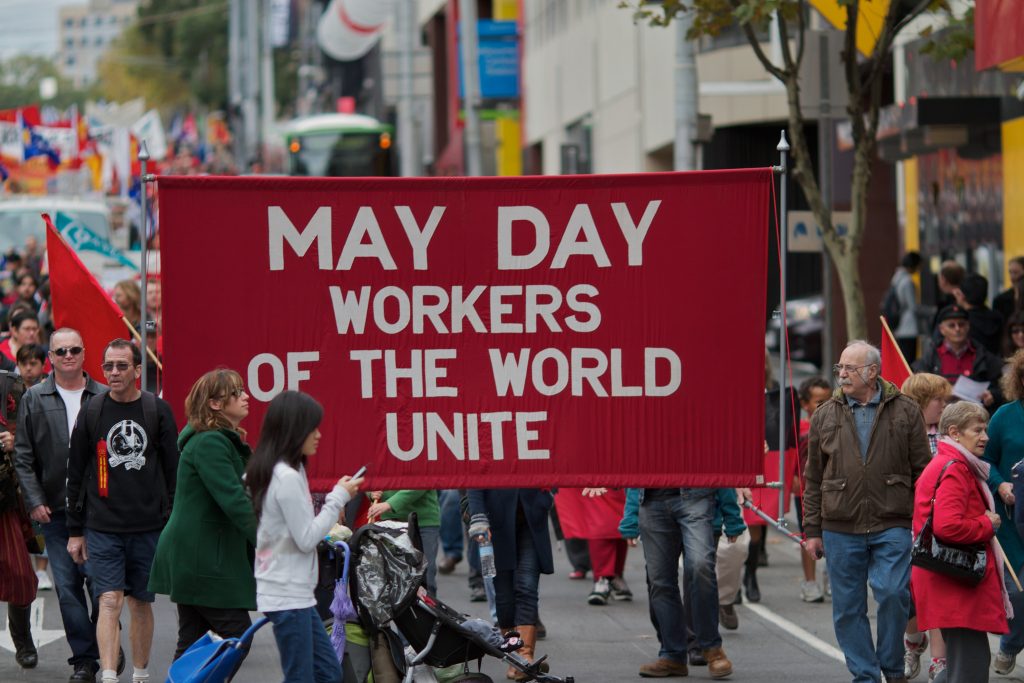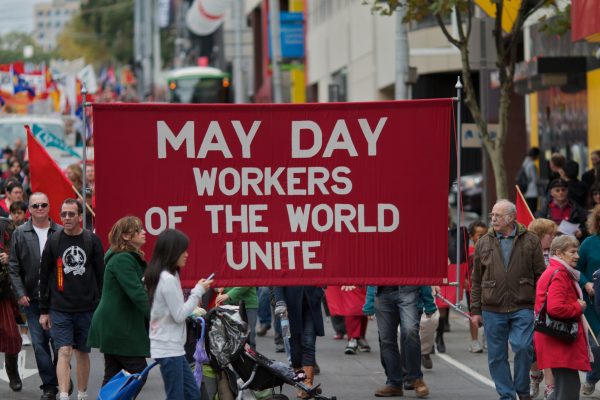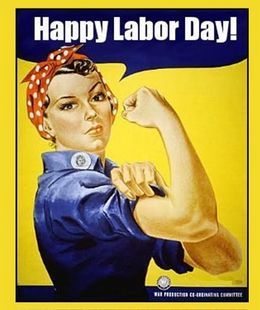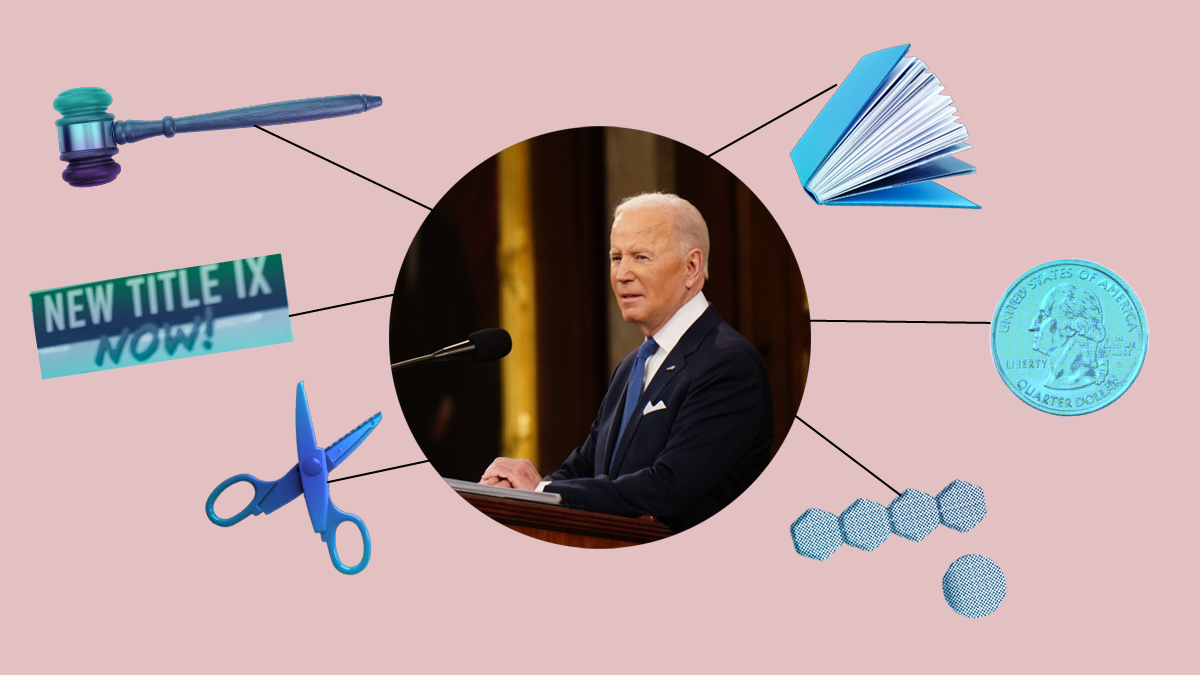Abortion rights, women of color, and LGBTQI+ people are under attack. Pledge to join us in fighting for gender justice.
May Day Is About More than Flagpoles and Daises – Especially for Women


It’s not every day that you nearly run headlong into one of the most powerful women in the world, but Washington D.C. isn’t your average city. There are a few things that I’ve come to expect when I’m wandering around Georgetown at night—like the inexorable urge for “movie nachos” I get every time I go to the local AMC—but running into a phalanx of German security guards as I try not to trip on cobblestones isn’t one of them. That quaint alleyway feature might explain why I nearly collapsed onto my friend when he turned on a dime and said “holy feminism*, that’s Angela Merkel!” Or maybe I’m just clumsy and cobblestones are a rudimentary form of American Gladiator training that I’ve yet to master. (*Those may or may not be his exact words, but I think we can agree that it’s the kind of exclamation we should all be adopting anyway.) In any case, last Thursday as I watched the Chancellor stroll purposefully past us in her dark teal power suit and I pried myself off the lamppost I’d managed to grab to stop myself from falling, I was struck by the thought that Merkel was one of the world’s most influential people, let alone women.

Today is May Day, and as I reminisce about the few seconds that the Chancellor of Germany and I breathed the same air, I’m mulling over two facts: 1) Stumbling against that lamppost as I tried not to fall is as close as I’ve ever personally come to dancing around a May pole, a Pagan tradition that likely originated in Germanic Europe, and 2) May Day is International Workers’ Day. In most other countries, it’s a day to remember and commemorate the struggles of working people.
Although International Workers Day has its roots in the United States—Lucy Parsons, an American anarchist and labor organizer, helped to launch the first May Day in 1886—our corner of the Northern Hemisphere generally associates May Day with the aforementioned May poles, dancing, and flower-festooned accessories. Internationally, however, countries stretching from Europe to Asia and beyond consider it their Labor Day. Merkel’s Germany, for instance, annually commemorates the day with workers’ rights rallies.

The date of May 1st is recognized because of the militant actions—and backlash that followed—against workers fighting for an eight-hour workday in Chicago. A few days after the march that Parsons helped lead in 1886, a bomb exploded at a labor rally in Haymarket Square, killing 11 people. Several years later, a group of socialist and labor parties in Europe called for May 1st to be a day to honor the struggles of the workers in Chicago and those who died in Haymarket Square. Nearly a century and a half later, we in the U.S.—apparently ever fearful of socialism—celebrate working people on Labor Day in September, a day unconnected to the populist struggles of workers throughout history. As for the movement for fair work schedules, many people are still mired in irregular schedules nothing like the eight-hour work day for which Parsons fought (and ultimately won). Across the country, women, and especially women of color, are disproportionately harmed by unfair work schedules. That is far from the only economic difficulty facing women workers nationwide.
For example, unions, which are important for promoting economic equality and security for women and people of color, are facing significant challenges in today’s political climate. Many workplaces still discriminate against pregnant workers, despite the existence of the Pregnancy Discrimination Act and the fact that women make up half the workforce. On top of that, the stagnation of the minimum wage in the U.S. has meant that millions of women are struggling to support themselves or their families while working a fulltime job. Finally, tipped workers (two-thirds of whom are women) experience poverty rates more than twice as high as rates for workers overall, because federal law allows employers to pay tipped workers just $2.13 an hour before tips.

These are just a few of the issues that we need to be talking about on May Day this year. Tell your friends that International Workers’ Day is about more than just figuring out how to weave daisies into crowns. Tell your members of Congress to support legislation that increases protections for pregnant workers, establishes fair work scheduling practices, raises the minimum wage, and ensures that tipped workers are entitled to the full minimum wage (before tips). Support public school teachers across the country protesting for improved wages and working conditions. Keep talking about and taking action on these vital issues, because that is how real change begins.
After all, if the first female chancellor of Germany can brave the streets of Georgetown on Thirsty Thursday, then we can have hard conversations about workers’ rights. Don’t let this year’s May Day just dance on by.





